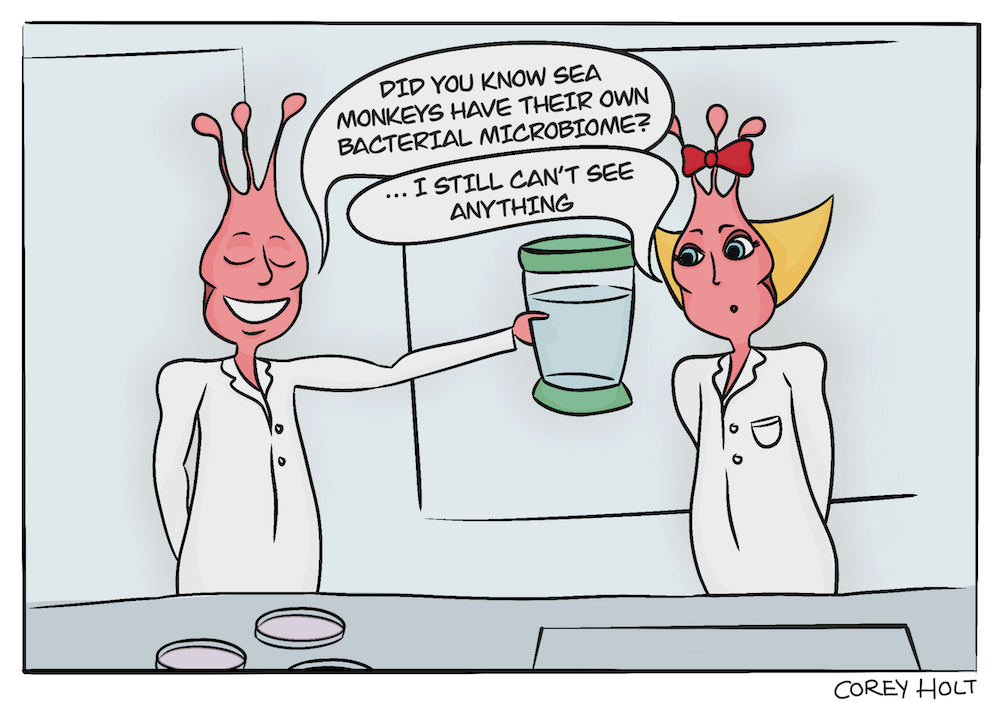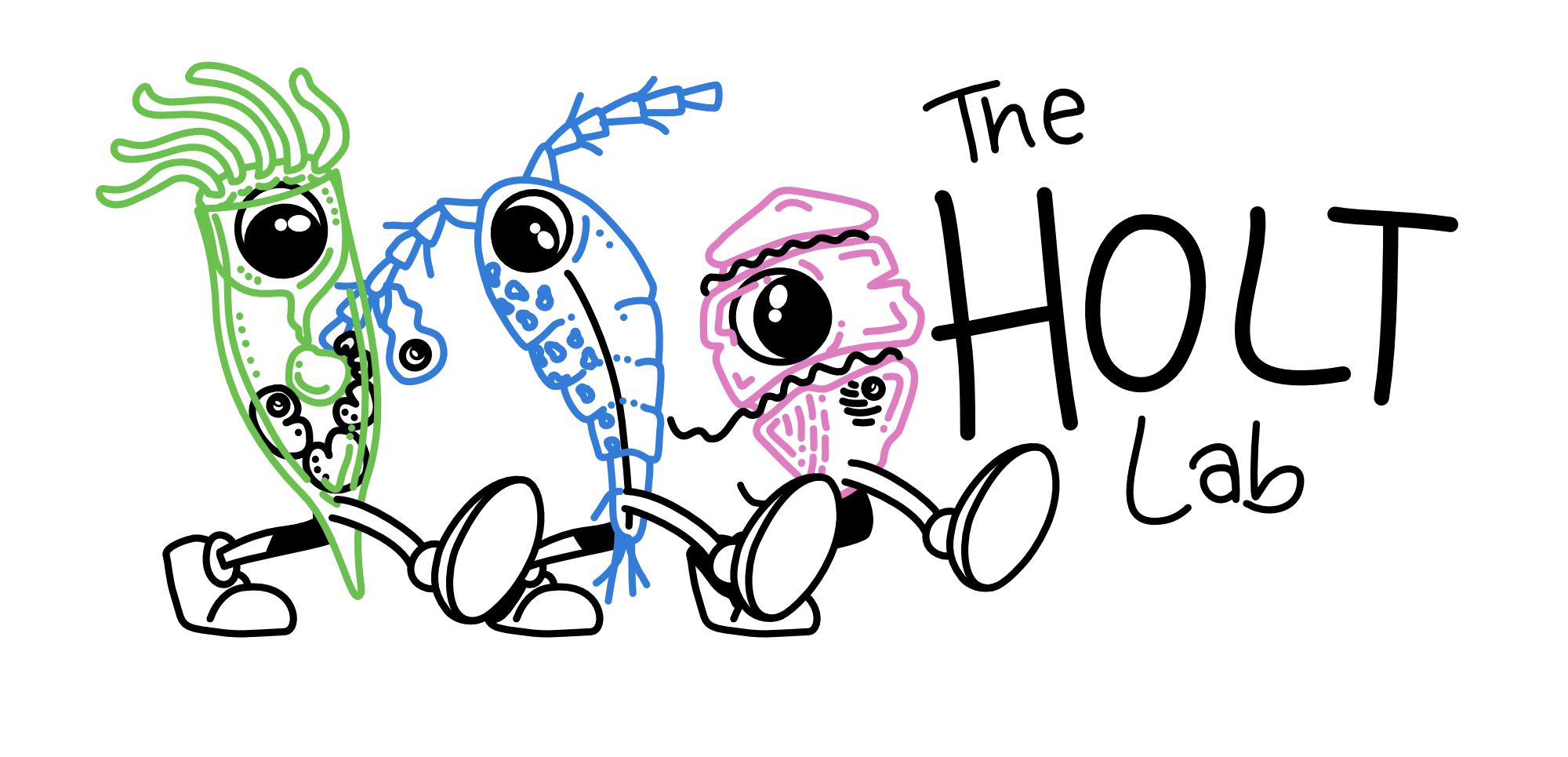Beyond a handful of model or commercial species, invertebrate microbiomes are vastly understudied. However, these animals, and these animal-microbe interactions in particular, are vital for ecosystem functioning.
Many people will be unfamiliar with the tiny invertebrates that support aquatic environments. Therefore, stressing the importance of these host-microbe interactions and their implications for wider environmental health can be challenging.
Artemia, or brine shrimp, are incredibly important for aquatic food production (thousands of tonnes are produced each year as feed for other animals) but are perhaps better known to some by another name: Sea-Monkeys. Many of us have peered into Sea-Monkey tanks, willing our “instant pets” to finally hatch. Like a handful of other animals, brine shrimp can enter a period of suspended development, and this “diapause” is broken when the eggs are submerged in water. This means dehydrated eggs, which are remarkably stable, can be easily transported and reconstituted at a later date (be it in small, novelty tanks or otherwise).
In part, this project demonstrates how complex questions can be asked of seemingly simple systems. But, more importantly, by using a familiar invertebrate like Sea-Monkeys, I hope this paper can be a resource for science communication – an entry point into discussing the importance of invertebrate-microbe interactions in the environment with a wider audience.

